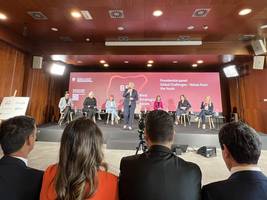Human Rights Ombudsman Peter Svetina participated at the 18th Bled Strategic Forum (BSF), the participants of which included numerous distinguished guests from the worlds of politics, business, non-governmental institutions, and civil society, among them the President of the Council of Europe, Presidents of Greece and Moldova, presidents of governments of the countries of the Western Balkans, and many others. In the light of the imminent membership of Slovenia in the United Nations Security Council and recent devastating floods, which struck a good part of Slovenia at the beginning of August, this year’s BSF is dedicated primarily to debates about the importance of solidarity while facing global challenges.
Today, 75 years after the adoption of the Universal Declaration of Human Rights, questions of peace, justice, and freedom are once again brought to the forefront. Human rights and fundamental freedoms are exposed more than ever before: senseless wars – in Ukraine and elsewhere in the world, the Covid-19 pandemic, humanitarian and developmental challenges, migrations and the refugee crisis in Europe, poverty, climate change reminding us of the damage we have been causing the planet for centuries, and other geopolitical circumstances that influence our lives. “All these have shaken our security and changed our value system,” believes the Ombudsman, adding that decisions of bodies or institutions which are judging which rules in society should be valid so that dignity of every person will be respected, and their rights and fundamental freedoms realised, are hence crucial.
This is what Ombudsman Svetina talked to the Commissioner for Human Rights of the Council of Europe Dunja Mijatović about at a bilateral meeting. They agreed that national institutions for human rights play a crucial role in promoting and monitoring the implementation of international human rights standards and that their role should be strengthened. Ombudsman Svetina further emphasised that for the full observance of the independence of the institutions, a constructive dialogue between decision-makers is necessary regarding all questions pertaining to the operation of independent institutions, including deciding on their competences. The Ombudsman and the Commissioner stressed that deciding on tasks and their implementation must be in the domain of the institutions, which are by nature and legal status independent. The Commissioner also showed interest in the state of human rights in Slovenia, hence the Ombudsman briefly presented the key findings from his current annual report. They also devoted some attention to the issues from the fields of the environment, gender inequality, touched upon the importance of human rights in business, and discussed the (dis)respect of human rights of migrants. They agreed that this issue reaches across the borders of individual countries and should thus be appropriately addressed on the supranational level. The Ombudsman informed the Commissioner that some time ago he wrote on this subject to the European Commission. “The European Union forms a joint policy on asylum, international and temporary protection with the purpose of providing the appropriate status to citizens of third countries who need international protection. EU law imposes certain obligations on the member states in the field of asylum and migration policies, which cannot be simply overlooked or bypassed unilaterally. Therefore, I believe that in the EU we need to strive towards harmonised action of the member states. It should not be forgotten that every single state can be influenced by completely unilateral decisions of other states, which has been the case in the past,” highlighted Ombudsman Svetina. Commissioner Mijatović praised the work and efforts of the Slovenian national institution for human rights which, as she said, she values very highly.
On the margins of the BSF, Peter Svetina also met with the representative of the High Commissioner for Refugees (UNHCR) for Central Europe Muriel Tschopp. They talked about the possibilities for collaboration in the field of asylum and about further monitoring of challenges related to police procedures, early recognition of vulnerability of applicants for international and temporary protection, and their access to services. In Ombudsman Svetina’s belief, standards of human rights must be strictly abided by and ways of inclusion and mutual coexistence sought. Only in a world where we accept one another just as we are, regardless of where we come from, can we live in peace and harmony. As he believes, solidarity, cooperation, and collaboration are the key to building or strengthening strong, inclusive, and resilient communities.
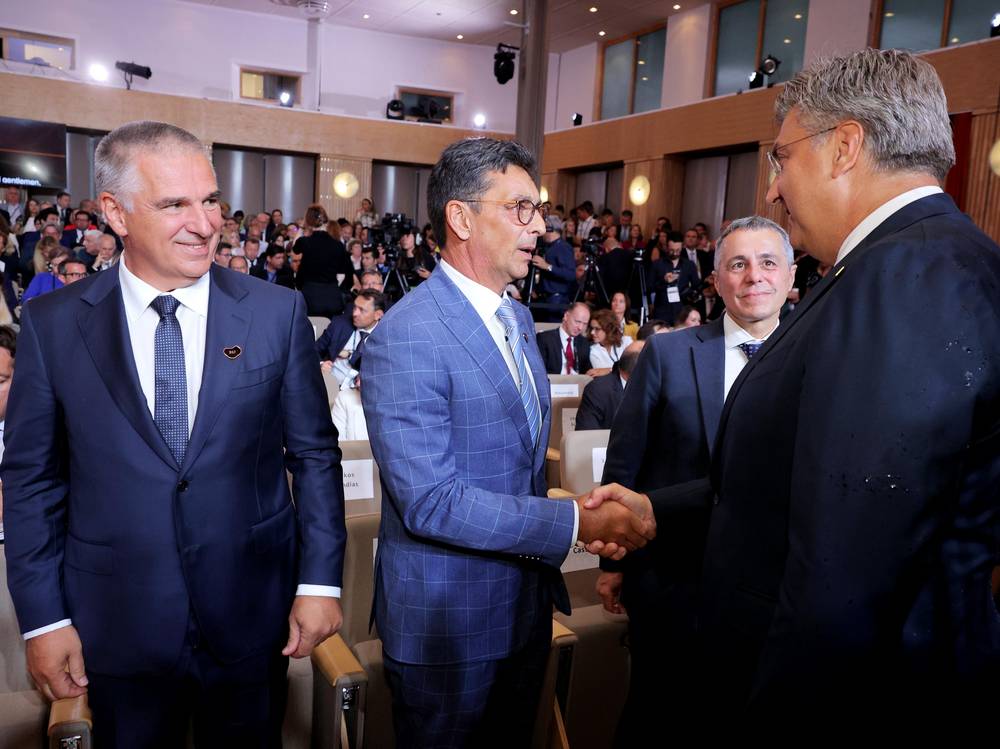
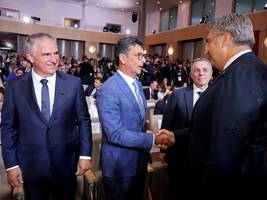
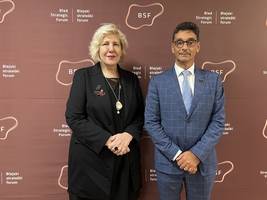
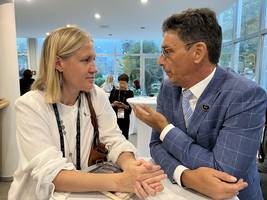
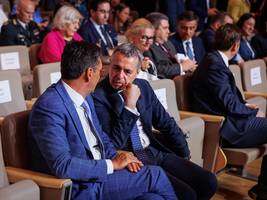
![[Translate to English:] Razprava voditeljev držav Balkana na Blejskem strateškem forumu](/fileadmin/_processed_/2/a/csm_IMG-9132_7b1e72102b.jpg)
